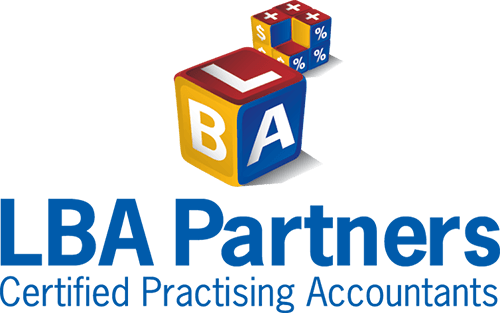P r a c t i c e U p d a t e
November 2011
Christmas gifts
Editor: Last month we covered Christmas parties and the fringe benefits tax (FBT) and the income tax consequences of holding parties for staff and clients or suppliers.
But as businesses often provide gifts to clients and staff this time of the year, we thought we would now discuss how they are handled "taxwise".
Gifts which ARE NOT considered to be entertainment
These generally include, for example:
- a Christmas hamper, a bottle of whisky, wine, etc.; and
- gift vouchers, a bottle of perfume, flowers, a pen set, etc.
Briefly, the general FBT and income tax consequences for these gifts are as follows:
- gifts to employees and family members – FBT is payable (except where the less than $300 minor benefit exemption applies) and a tax deduction is allowed; and
- gifts to clients, suppliers, etc. – no FBT, and a tax deduction is allowed.
Gifts which ARE considered to be entertainment
These generally include, for example:
- tickets to attend a theatre, live play, sporting event, movie or the like; and
- a holiday airline ticket or admission ticket to an amusement centre.
Briefly, the general FBT and income tax consequences for these gifts are as follows:
- gifts to employees and family members – FBT is payable and a tax deduction is allowed (except where the minor benefit exemption applies); and
- gifts to clients, suppliers, etc. – no FBT and no tax deduction.
Non-entertainment gifts at functions
What if a Christmas party is held at a restaurant at a cost of less than $300 for each person attending, and employees with spouses are given a gift or a gift voucher (for their spouse) to the value of $150?
Under the actual method, for employees attending with their spouses – no FBT is payable because the cost of each separate benefit (including the gift) is less than $300 (i.e., the benefits are not aggregated).
No deduction is allowed for the food and drink, but the gift is deductible.
Where the 50/50 method is adopted:
- 50% of the total cost of food and drink is subject to FBT and deductible; and
- the total cost of all gifts is not subject to FBT because the individual cost of each gift is less than $300.
As the gifts are not entertainment, the cost is deductible.
Editor: As we said last month, this is all pretty complicated so if you would like a little help, just contact our office.
Small business benchmarks
Editor: The Tax Office says that its small business benchmarks have been developed to help taxpayers compare their performance against similar businesses in their industry.
As you might expect, they also are a guide to the level of income that the ATO will expect from a business in a particular industry.
There are now more than 100 benchmarks for businesses with different turnover ranges i.e., small/medium/large, which are on the ATO's website.
Not surprisingly, the Tax Office says that businesses reporting outside the benchmarks may attract their attention as it may be an indication that the business is not recording and paying tax on all transactions, especially cash.
When undertaking an audit, the Tax Office is likely to use the relevant benchmark to estimate the income that has not been reported.
Clients who may be concerned or who would like to discuss the benchmark for their industry, should contact our office.
Benchmarks for new industries
New benchmarks have been published for the following industries:
- Landscape construction;
- Motor vehicle retail – new and used;
- Panel beating and smash repairers;
- Lawn mowing and garden services;
- Tattooing services; and
- Pharmacies.
Over the next 12 months, they intend to publish benchmarks for a further 30 industries.
Record-keeping for businesses
Editor: With the introduction of benchmarking, record-keeping has become the name of the game when a taxpayer is audited so they can prove their figures are correct. The following is an excerpt from the ATO's stance on record-keeping.
The ATO would expect a retail business to:
- record each individual sales transaction through their cash register or point-of-sales system;
- conduct a daily sales reconciliation between the 'z' total (or end-of-day report if they use an electronic system) and cash in the register, taking into account cash taken from the register for business and personal expenses;
- transfer the daily sales total into a cash receipts book regularly;
- perform bank reconciliations between bank statements and the cash receipts book, at least monthly;
- retain for a period of five years:
– the 'z' totals or point-of-sales system end-of-day reports;
– daily reconciliations;
– bank records and cash receipts book; and
– till rolls or end-of-day reports that record details of each individual transaction (if 'z' totals have been reconciled with actual cash sales and banking, detailed till rolls may be discarded after one month); and
- maintain a filing system to keep track of paid and unpaid accounts.
ATO's new property webpage
The ATO has launched a new property webpage which outlines information on property topics including:
Income Tax;
Capital Gains Tax (CGT);
Goods and Services Tax (GST);
Residential rental properties;
Property used in running a business;
Property development; and
Building and renovating.
The new ATO property guide can be found on their website at www.ato.gov.au/property.
Pacific Seasonal Workers' tax rate reduced
Legislation has been introduced to reduce the lowest marginal tax rate for Pacific Seasonal Workers to 15% (down from 29%), effective for the 2011/12 year of income.
Background
One of the main objectives of the Scheme is to assist Australian farmers/horticulturists to source seasonal workers.
Please Note: Many of the comments in this publication are general in nature and anyone intending to apply the information to practical circumstances should seek professional advice to independently verify their interpretation and the information's applicability to their particular circumstances.
Management Consulting
We have the know-how and experience to offer advice that helps you run your business more effectively.
Self-Managed Superannuation Funds
At LBA Partners we provide the professional advice you need to manage your own fund and greatly simplify the process for you.



